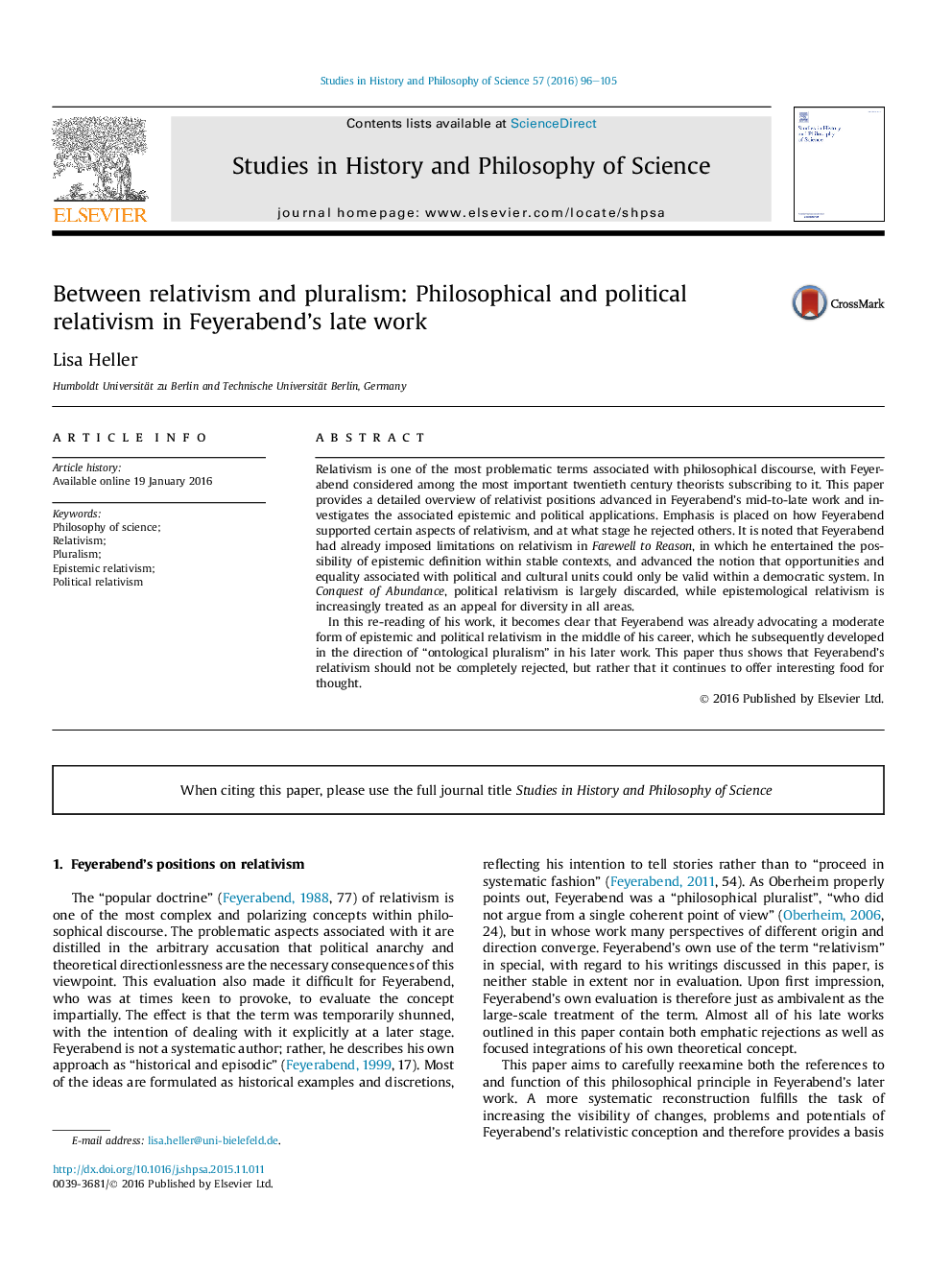| Article ID | Journal | Published Year | Pages | File Type |
|---|---|---|---|---|
| 1160269 | Studies in History and Philosophy of Science Part A | 2016 | 10 Pages |
•Relativism is one of the most problematic terms associated with philosophical discourse.•Feyerabend is considered among the most important twentieth century theorists subscribing to relativism.•Emphasis is placed on how Feyerabend supported certain aspects of relativism, and at what stage he rejected others.
Relativism is one of the most problematic terms associated with philosophical discourse, with Feyerabend considered among the most important twentieth century theorists subscribing to it. This paper provides a detailed overview of relativist positions advanced in Feyerabend's mid-to-late work and investigates the associated epistemic and political applications. Emphasis is placed on how Feyerabend supported certain aspects of relativism, and at what stage he rejected others. It is noted that Feyerabend had already imposed limitations on relativism in Farewell to Reason, in which he entertained the possibility of epistemic definition within stable contexts, and advanced the notion that opportunities and equality associated with political and cultural units could only be valid within a democratic system. In Conquest of Abundance, political relativism is largely discarded, while epistemological relativism is increasingly treated as an appeal for diversity in all areas.In this re-reading of his work, it becomes clear that Feyerabend was already advocating a moderate form of epistemic and political relativism in the middle of his career, which he subsequently developed in the direction of “ontological pluralism” in his later work. This paper thus shows that Feyerabend's relativism should not be completely rejected, but rather that it continues to offer interesting food for thought.
